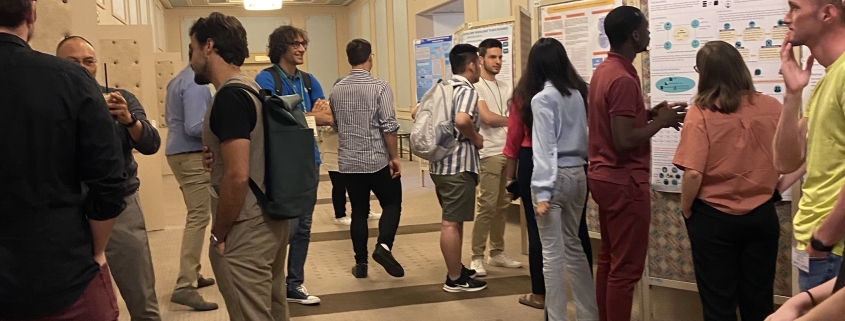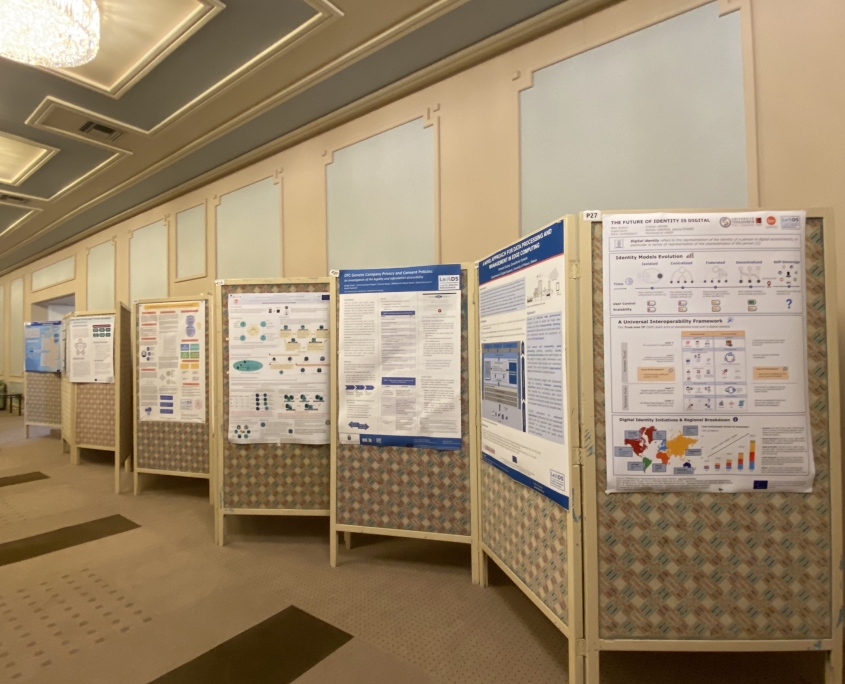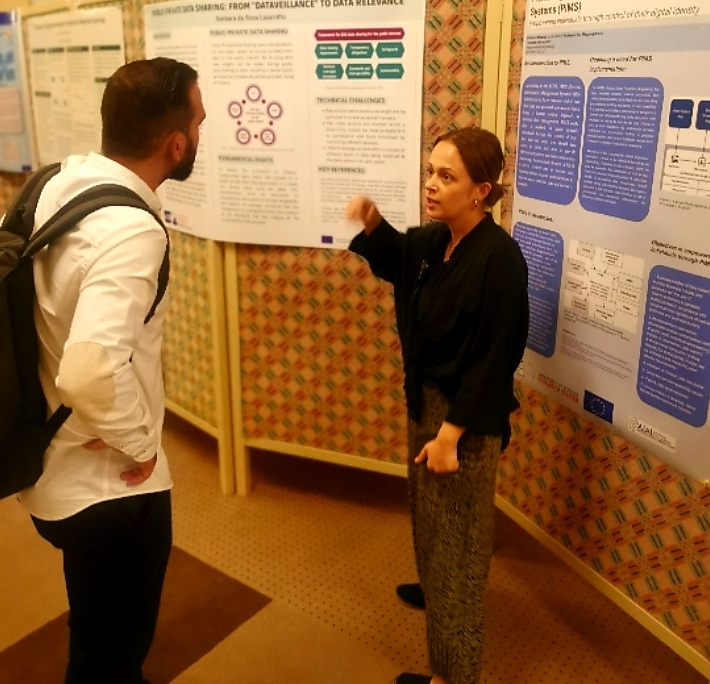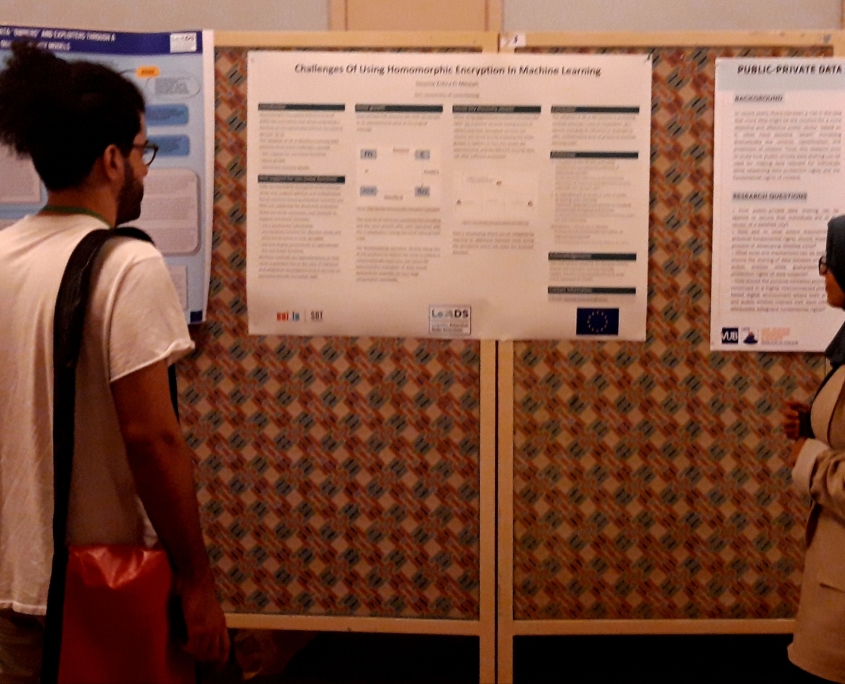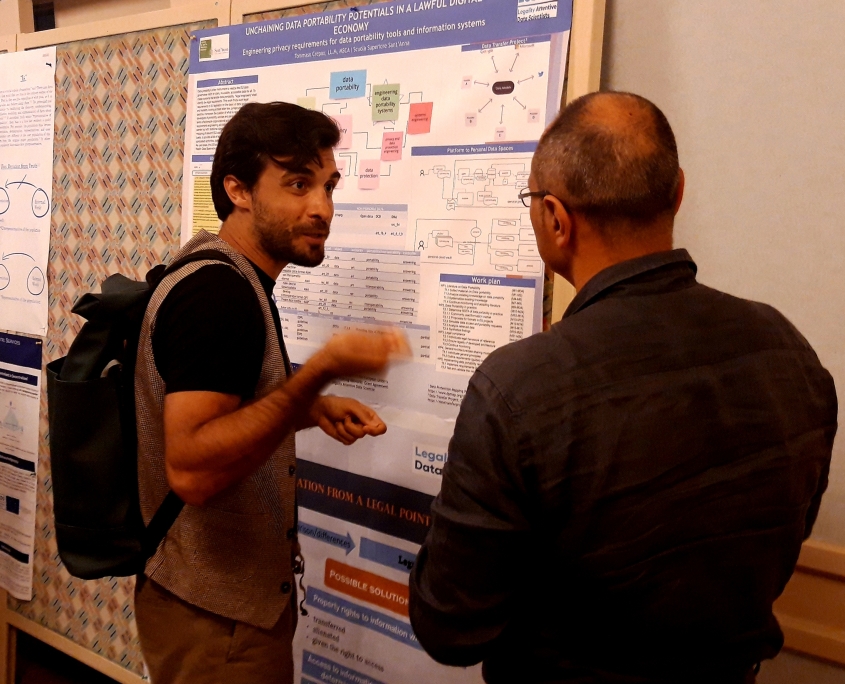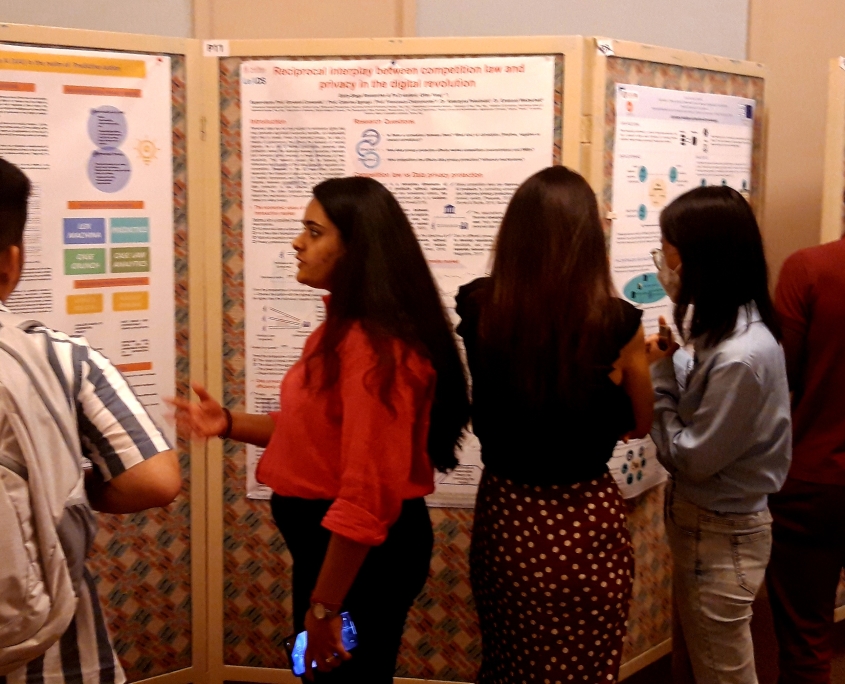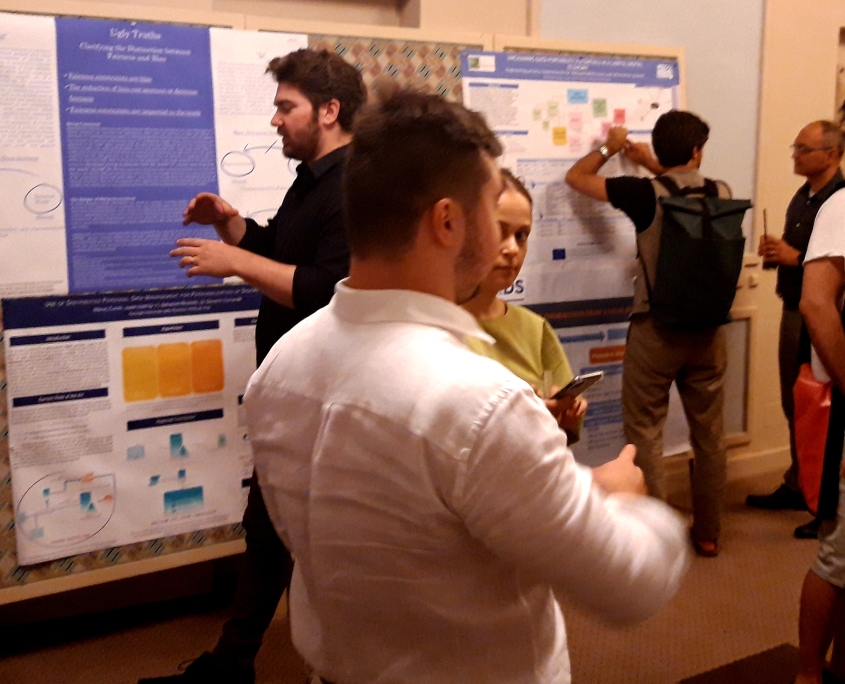LeADS Training – Poster Session and the Transition from Theory to Practice
From the 19th to 25th of June 2022 the 15 ESRs met again for their fourth training module. This time they had the chance to meet on the beautiful island of Crete, Greece. Whereas the previous modules in Pisa focussed on the legal perspective, this training focussed more on the computer scientist perspective.
LeADS at AIAI: Panel discussion and Poster Session
The training week kicked off with a workshop on “Best Practices for the development of intelligent and trustworthy algorithms and systems” at the 18th International Conference on Artificial Intelligence Applications and Innovations (AIAI). The workshop was divided into two separate panel discussions. The first panel, moderated by Imge Ozcan from VUB, the speakers Katerina Demetzou (Future of Privacy Forum), Paul De Hert (VUB), and Afonso Ferreira (CNRS, Institut de Recherche en Informatique de Toulouse) discussed topics surrounding “Data Ownership, Privacy and Empowerment”.  During their contributions the speakers addressed questions such as whether or not a potential data ownership right could integrate into existing data protection law. The second panel, moderated by Giovanni Comandé from SSSA, was entitled “Trustworthy Data Processing Design”. The speakers Jessica Eynard (Toulouse Capitole University), Gabriele Lenzini (University of Luxemburg), and Salvatore Rinzivillo (Italian National Research Council) debated what kind of legal, ethical, and technological framework is needed in order to ensure a trustworthy data economy that increasingly is in demand for secondary data uses.
During their contributions the speakers addressed questions such as whether or not a potential data ownership right could integrate into existing data protection law. The second panel, moderated by Giovanni Comandé from SSSA, was entitled “Trustworthy Data Processing Design”. The speakers Jessica Eynard (Toulouse Capitole University), Gabriele Lenzini (University of Luxemburg), and Salvatore Rinzivillo (Italian National Research Council) debated what kind of legal, ethical, and technological framework is needed in order to ensure a trustworthy data economy that increasingly is in demand for secondary data uses.
Furthermore, prior to the conference all ESRs prepared posters to visualize the most important results of their research. All posters were exhibited and accessible to visitors from the AIAI conference which allowed the ESRs to engage and discuss their research with the international audience from the conference.
Training Week: From Theory to Practice
Followed by this engaging introductory sessions, the ESRs presented the results from their individual research they had been conducting throughout the first months from the LeADS project. All 15 ESRs are divided into 4 Crossroads, i. e. major challenges that still need to be addressed in data-driven societies: (1) Privacy vs Intellectual Property (2) Trust in Data Processing & Algorithm Design (3) Data Ownership (4) Empowering Individuals. Each ESR has furthermore been assigned an individual research topic. During the first months of their research journey, the ESRs wrote a State-of-the-Art analysis of their topic which constitutes the scientific foundation for the upcoming research and cross-collaboration between the researchers. During 4 sessions each ESR from each crossroad had 20 minutes to present and discuss their results.
Michael Filippakis from University of Piraeus subsequently discussed how data science impacts society and can support policy-making processes and benefit innovation. In a hands-on session he introduced the ESRs to time series analysis with R programming language. Ilias Maglogiannis from University of Piraeus in his lecture on pervasive health management technology and data analytics gave several practical examples how technology is used to analyze health activities, for instance, in the case of smart clothing to monitor athletic activities. Giovanni Comandé from SSSA talked about (challenges to) secondary uses of data and elucidated on relevant GDPR provisions. Salvatore Rinzivillo in his engaging lecture discussed with the ESRs how to design explainable AI, i. e. how to incorporate intelligibility (how does it work?) and accountability (who is responsible for?) in AI systems.
The last 3 days from the training where dedicated to two practical sessions. 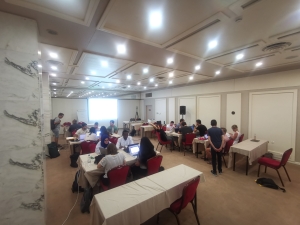 First, Mohamed Ali Kandi from UT3 introduced the ESRs to the creation and deployment of smart contracts with solidity. Followed by this introduction the ESRs were divided in groups consisting of both lawyers and computer scientists – reflecting the interdisciplinary approach which the LeADS project epitomizes. These interdisciplinary groups then had to write and deploy a smart contract which allowed a controller to assign and remove the right to data subjects to rectify their data. Second, Itzel Vazquez Sandoval from University of Luxembourg introduced the ESRs to the design and analysis from security protocols. During the subsequent practical session, the ESRs were introduced to the tool ProVerif and had to analyse a bank statement request protocol. In groups the ESRs had to identify potential weaknesses for attacks that could lead to security breaches in the design from the protocol.
First, Mohamed Ali Kandi from UT3 introduced the ESRs to the creation and deployment of smart contracts with solidity. Followed by this introduction the ESRs were divided in groups consisting of both lawyers and computer scientists – reflecting the interdisciplinary approach which the LeADS project epitomizes. These interdisciplinary groups then had to write and deploy a smart contract which allowed a controller to assign and remove the right to data subjects to rectify their data. Second, Itzel Vazquez Sandoval from University of Luxembourg introduced the ESRs to the design and analysis from security protocols. During the subsequent practical session, the ESRs were introduced to the tool ProVerif and had to analyse a bank statement request protocol. In groups the ESRs had to identify potential weaknesses for attacks that could lead to security breaches in the design from the protocol.
Both exercises strengthened the understanding from the ESRs how solutions to GDPR requirements can be designed, implemented, and analysed and thereby putting a dialogue between computer scientists and lawyers into practice.


